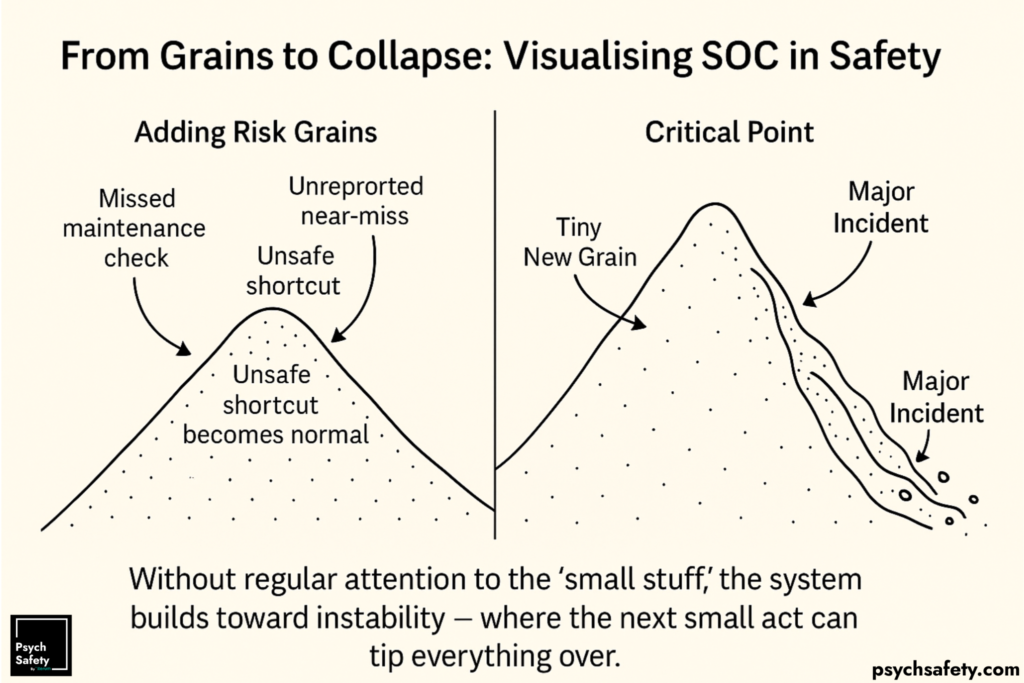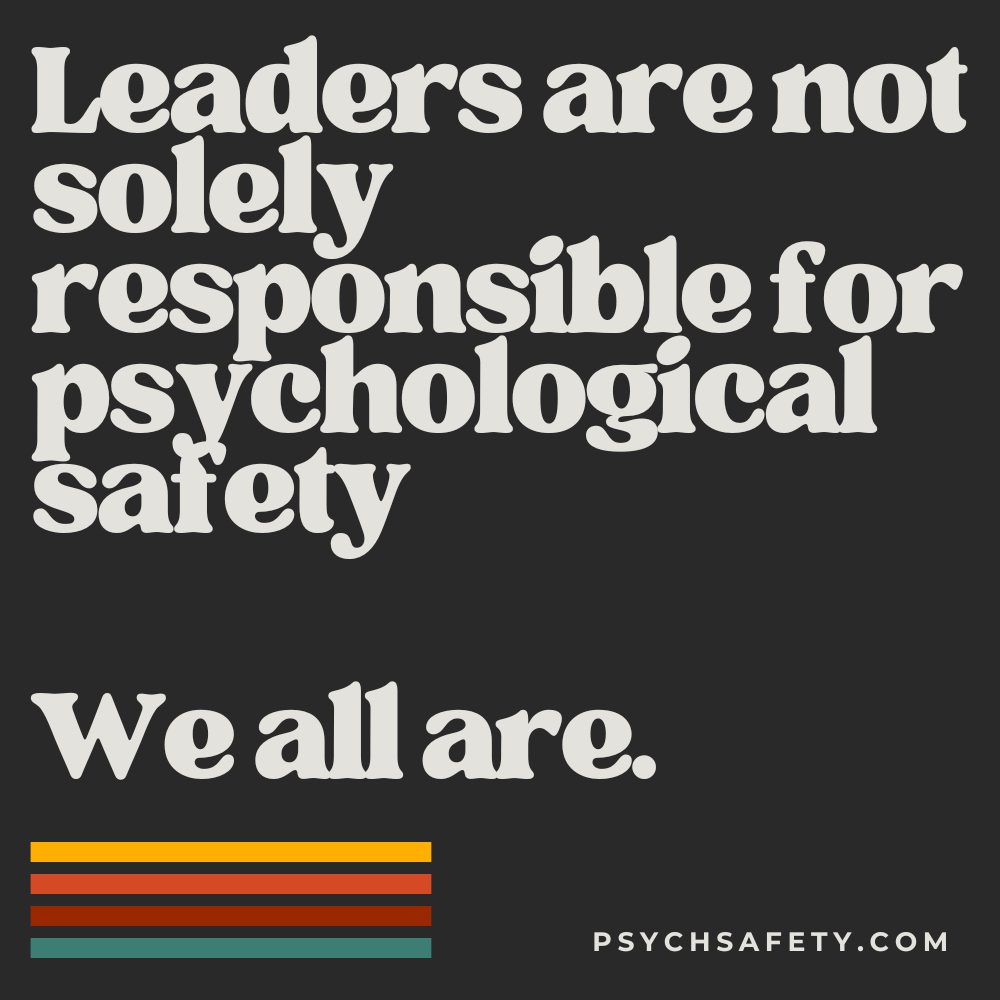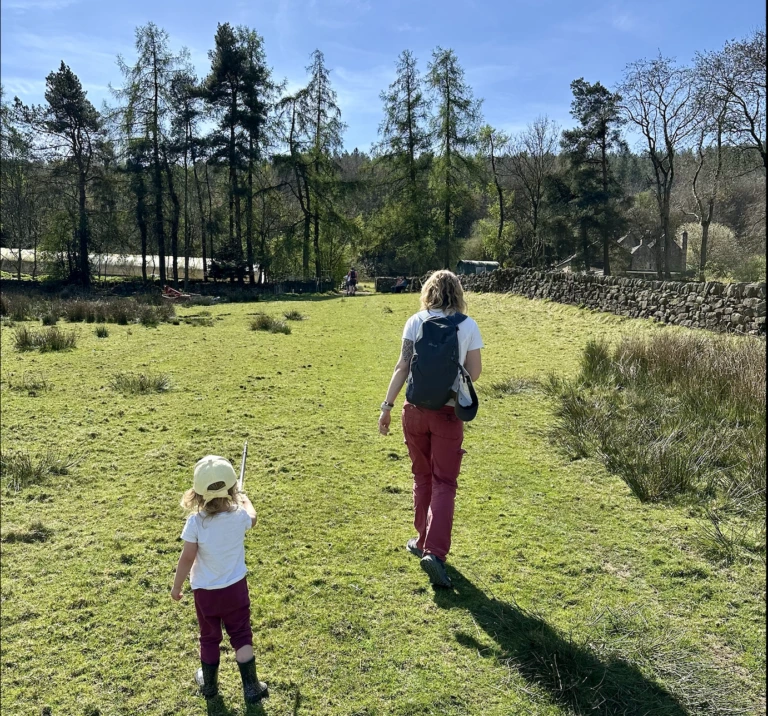Psychological Safety Doesn’t Mean Feeling Comfortable
By Jade Garratt
There are many misconceptions about psychological safety. One is that if we “achieve” psychological safety, it means that people will feel comfortable all the time. It’s understandable to see how that comes about – we think a great deal about how we can make it easier for people to speak up and share their ideas, questions, concerns or mistakes. But this still doesn’t mean that speaking up will always be comfortable for them, especially if they are sharing “bad” news or negative feedback. And, it certainly often doesn’t feel comfortable to be on the receiving end of that feedback. If you are successful in building psychological safety in your team, chances are at some point you will hear things that are hard to hear.

Particularly as leaders, it’s important to acknowledge this reality. Fostering psychological safety may not feel more comfortable at all – in fact it might feel far less comfortable, certainly in the short term. If we’re successfully opening up space for people in our teams to share things that they might have kept silent about previously, we need to recognise that we might find it difficult to hear some of that. They might share feedback about our management style, concerns about our ideas or question our judgement. All of this can be very discomforting.
And this can be especially challenging if we’ve come from a more traditional, conventional or Taylorist management background. We may hold deeply entrenched beliefs about the importance of our position within the organisational hierarchy, leading us to feel the need to hold onto power, maintain status, and appear infallible or unflappable. This doesn’t make us bad people; it simply reflects how we’ve learnt to survive in a dysfunctional system.
But we shouldn’t let this discomfort put us off doing the important work on psychological safety. After all, it’s only when we surface the issues that we can begin to work on them. As Lars Axelsson points out in his chapter of Resilience Engineering, “…a problem that stays with whoever discovers it, is a problem that remains unknown”. If psychological safety has been lacking for a long time, we may find that some of the problems that we surface are historical and not easily fixed now. We might have made a mistake that it’s too late now to unmake, or even upset someone who no longer works for the organisation. These things are still worth knowing, because we can still learn from them moving forwards. To paraphrase Maya Angelou, now that we know better, we can do better.
There is an argument that it’s healthy to feel this kind of discomfort. Especially when, on reflection, our behaviours need to change, as it can give us the impetus we need to start to do things differently. But it’s also important to treat ourselves with kindness through this process.
I’m ok, you’re ok
In our sessions on Delivering Effective Feedback, we use Thomas Harris’s classic “I’m ok, you’re ok” model which is rooted in Transactional Analysis. This model reminds us that, even in interactions involving disagreement or conflict, we can stay in a healthy, adult-to-adult state – “I’m ok, you’re ok.” Disagreement doesn’t require us to diminish the other person, or ourselves; instead, we can hold space for differing perspectives while still respecting their, and our, inherent worth and “ok-ness.”
When we’re on the receiving end of bad news, or difficult feedback, it’s easy to slip into a less constructive state. We might go onto the “one-up” position, where we quickly disregard what the other person is saying because it’s easier to believe they are just “wrong” or “bad” than allow the discomfort of what they’re saying to land. Alternatively, we might go into “one down” and begin chastising ourselves, thinking we’re terrible people or we deserve to have things go wrong. Neither of these are particularly helpful for moving forward constructively with the person we’re talking to.
Receiving “bad news”
So how do we look after ourselves when psychological safety means we start hearing the things that are hard to hear?
The first point is to remind ourselves that if people are feeling psychologically safe enough to share something with us now that they wouldn’t have done before, we’ve already made progress. We still don’t have to agree with what they’ve said, but we can acknowledge it as a useful insight into their perspective and their world, and make a considered decision about what (and whether) to change as a result.

Secondly, just like we encourage giving “thinking time” when we pose questions, letting people process their ideas before they answer, it’s also important to allow ourselves time to respond. We don’t always need to jump straight to an answer or a solution. Instead, taking some time to reflect on what’s been said can lead to a more intelligent, thoughtful response. This approach may also encourage the other person to speak up again in future.
Pause.
In practical terms, this might be as simple as pausing to take a breath before you reply, or it might take rather longer. It can be useful to have some phrases ready for this happening. Things like, “Thank you for telling me. It’s not easy to hear, but I really appreciate you being honest. I’d like to take a bit of time to reflect on what you’ve said – can we pick this up in 10 minutes/ tomorrow/ in our next one-to-one?”
Finally, remember that you don’t need to hold this alone. One of Amy Edmondson’s “Three Fundamentals” of Psychological Safety is acknowledging our own fallibility. We all make mistakes, we all get things wrong, we all have bad ideas or say things we later regret. Sharing things that have gone wrong with others can help them learn from them too, and can also offer us a different perspective. Seek out people who you can have these conversations with, whether that’s peers within your workplace, a trusted mentor or even by joining the Psych Safety community on Discord, which is full of great people keen to share ideas and learn together.
At the heart of this is cultivating a different mindset around our work and the fact that failure is an inevitable part of learning and growing. This isn’t easy. As Edmondson puts it “Failing well, perhaps even living well, requires us to become vigorously humble and curious – a state that does not come naturally to adults.” Learning things we weren’t expecting can be uncomfortable and changing the way we see ourselves and our work can be uncomfortable too. It requires shifting from a mindset of “knowing” to “learning”, and embracing our own mistakes as well as those others have made. But the reward of all of this is better learning, performance and maybe even happiness for ourselves and those we are working with.
References/ Further Reading
Right Kind of Wrong: Why Learning to Fail can Teach us to Thrive – Amy Edmondson
What Psychological Safety is Not
Delivering Effective Feedback Workshops
Psychological Safety and Giving Feedback
Telling the Boss Bad News Twice

More Feedback Workshops!
We’ve had a lot of demand for more Delivering Effective Feedback workshops, so we’ve scheduled another for January 9th, 2025. This session is scheduled for 10am GMT, so if you’re in Asia, Australia or New Zealand, you can attend without interrupting your sleep!
This Delivering Effective Feedback workshop builds on the foundations of psychologically safe practice in order to use feedback effectively and avoid causing harm.
In our work with teams, we’ve found that between 70% and 80% of feedback is not useful, and some of it is actually harmful. Only 20%-30% of feedback that people receive is actually useful! Primarily, this is simply because feedback is often delivered poorly.
This workshop examines the purpose of feedback, the characteristics of good feedback, traps to avoid, models to use, and practices to employ.
All attendees receive a Credly Badge, a certificate of completion to confirm attendance, further reading, materials and resources used in the session, a copy of the Psychological Safety Action Pack and a licence to use it in your organisation, access to a private alumni group, and some swag! Book here.

Psychological Safety in Practice
Goals and Perverse Incentives
Thanks so much to Jonathan Westover for having me join the Human Capital Leadership podcast, where we had a really interesting discussion about goals, perverse incentives, the Cobra Effect and Goodhart’s and Campbell’s Laws!

The ‘why’ behind your metrics
And thanks so much to Joao Moita for inviting me to speak on the Product Weekend podcast too, with a similar topic to above, where we discussed the “why” behind measuring, the seduction of quantification, and whether we should actually measure psychological safety at all. Listen on Spotify (or elsewhere), or watch on YouTube!

Thanks to both Don Gray and Balázs Szakmáry for sharing this with us! Work Chronicles never fail 

Midwifery and Psychological Safety in Northern Ireland
Thanks to Katie Johnston for sharing this summary report with me, from the Northern Ireland Department of Health, which examines midwifery and the wider maternity care and services across NI. The aim of the work was to identify the key conditions for safe, quality midwifery and wider maternity services in NI, and highlights psychological safety as a core area of focus.

I love Grant Snider’s Incidental Comics, and this one on Complexity really stood out to me this week.

This week’s poem:
God Says Yes To Me, by Kaylin Haught
I asked God if it was okay to be melodramatic
and she said yes
I asked her if it was okay to be short
and she said it sure is
I asked her if I could wear nail polish
or not wear nail polish
and she said honey
she calls me that sometimes
she said you can do just exactly
what you want to
Thanks God I said
And is it even okay if I don’t paragraph
my letters
Sweetcakes God said
who knows where she picked that up
what I’m telling you is
Yes Yes Yes
Kaylin Haught (1947-2018) was born in Illinois and raised on the Oklahoma prairie. Her father worked on an oilfield and was also a preacher, and her mother was a factory worker and Sunday School teacher. ‘God Says Yes To Me has been widely anthologised, and even set to jazz. Her poems appeared in Ms. Magazine, On the Bus, and other magazines and journals. Taken from “She is Fierce”, an anthology of feminist poetry. Thanks to Jade for suggesting it!
The post Psychological Safety Doesn’t Mean Feeling Comfortable appeared first on Psych Safety.






